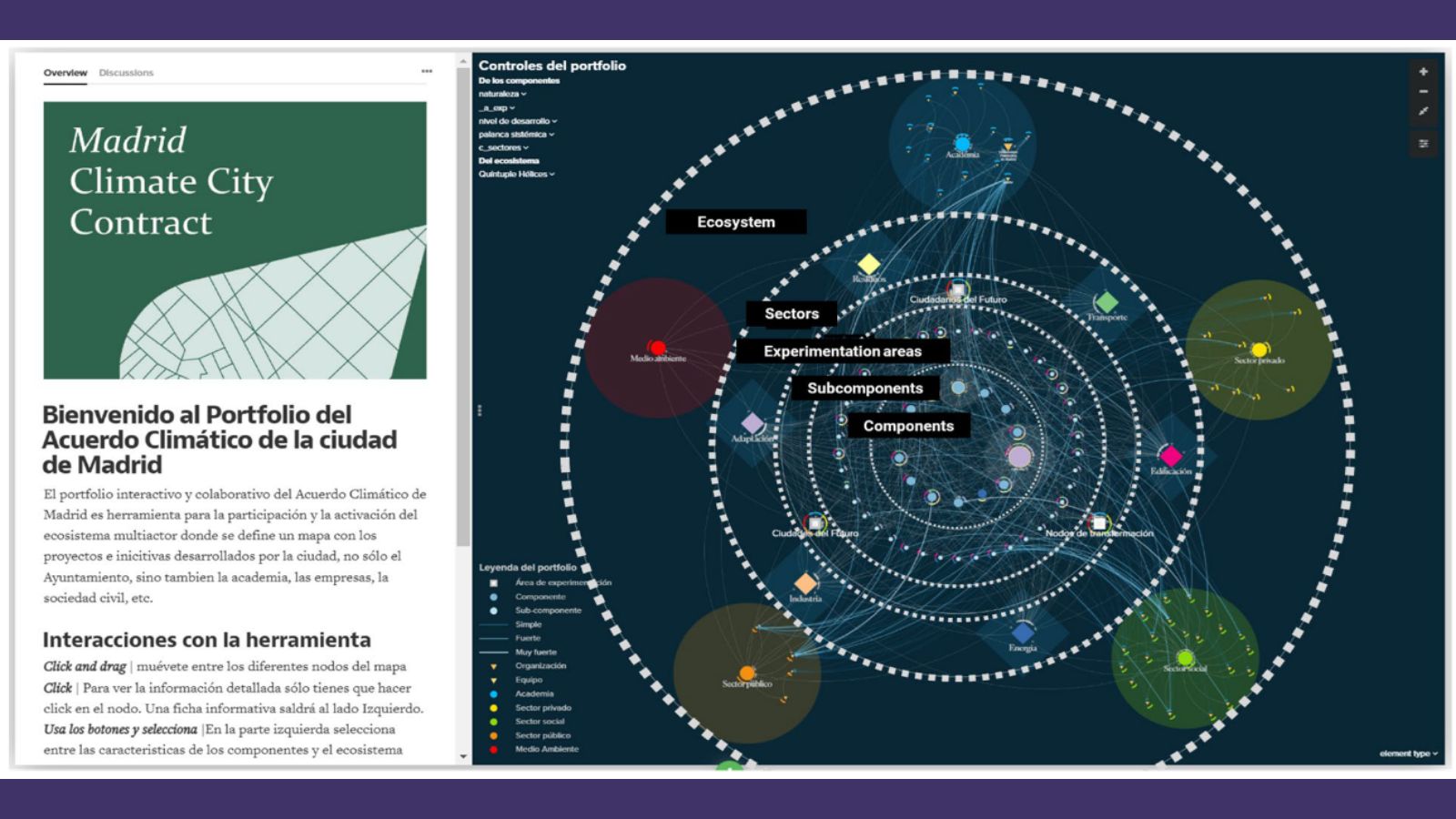The European project URBREATH continues to advance its mission to regenerate deprived urban areas through nature-based solutions, citizen participation, and advanced digital technologies. One of its key contributions is the recent publication of the scientific article “Breaking silos: A systemic portfolio approach and digital tool for collaborative urban decarbonisation,” developed by the team at the Innovation and Technology for Development Centre of the Universidad Politécnica de Madrid (itdUPM) in close collaboration with Madrid City Council.
Read the full article here.
The article introduces a digital tool and methodological framework for managing urban climate action portfolios in a more coordinated and inclusive way. Already applied to Madrid’s Climate City Contract (CCC), the tool uses interactive maps and network visualisations to identify synergies, gaps, and collaboration patterns between projects and stakeholders. The ultimate goal is to support local governments in making better-informed, mission-oriented decisions toward climate neutrality.
As part of its scaling strategy, URBREATH has signed a formal collaboration agreement with NetZeroCities, the coordinating body of the EU Mission for Climate-Neutral and Smart Cities. This partnership enables the transfer of knowledge, tools, and methodologies to other Mission Cities, strengthening the alignment between local innovation and European climate objectives.
The development of this taxoniomy and digital tool has been grounded in applied research and collaborative work between itdUPM and the Madrid City Council. Co-designed with municipal staff and based on in-depth analysis of policies and projects, the digital portfolio was piloted in Madrid as a living urban lab—demonstrating how systems thinking, data, and participatory processes can be integrated into new models of climate governance.
As the article highlights, breaking down institutional silos is not just a metaphor—it is an urgent task if we are to drive a fair and effective urban transformation. URBREATH will continue to build on this approach in the coming months, working with its pilot cities and consolidating its contribution to the Mission. All knowledge generated is available as open-access resources for public and civic actors working towards more resilient, regenerative, and democratic urban futures.

